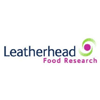‘Shelf life savviness’ will aid food waste reduction
- Like
- Digg
- Del
- Tumblr
- VKontakte
- Buffer
- Love This
- Odnoklassniki
- Meneame
- Blogger
- Amazon
- Yahoo Mail
- Gmail
- AOL
- Newsvine
- HackerNews
- Evernote
- MySpace
- Mail.ru
- Viadeo
- Line
- Comments
- Yummly
- SMS
- Viber
- Telegram
- Subscribe
- Skype
- Facebook Messenger
- Kakao
- LiveJournal
- Yammer
- Edgar
- Fintel
- Mix
- Instapaper
- Copy Link
Posted: 9 December 2014 | Leatherhead Food Research | No comments yet
Sophisticated shelf life strategies could help accelerate industry-wide efforts to reduce unnecessary food waste, according to Leatherhead Food Research…


Sophisticated shelf life strategies could help accelerate industry-wide efforts to reduce unnecessary food waste, according to Leatherhead Food Research.
A report produced by WRAP (Waste Resources & Action Programme) suggests that UK households waste around 19% of the food they bring into the home. Some of this wastage could be avoided with more precise shelf life determination.
In a bid to help the industry enhance shelf life accuracy, Leatherhead has launched a free White Paper with advice on how to navigate this evolving field: Shelf Life Determination: Best Practice Guidance.
Methods for validating shelf life have made significant progress in the past decade, enabling traditional practices such as short dating to work in conjunction with robust scientific trials. These include real-time testing where finished products undergo microbiological screening during storage, and accelerated testing which assesses non-microbiological changes under controlled conditions.
Combining these tests with practical methods to extend shelf life can play a significant role in food waste reduction. Real-time testing has shown that advancements such as Modified Atmosphere Packaging can delay the onset of spoilage in some products that have poor microbial stability. This ensures food stays fresher and good to eat for longer.
Leatherhead’s White Paper, available to download online, summarises real-time, advanced and challenge testing techniques. It also covers wider factors such as ingredient quality and underlines the importance of keeping up-to-date with innovations in shelf life extension.
“Shelf life determination is a complex field, but our White Paper acts as a stepping stone for food manufacturers who want to become more shelf life savvy,” says Isabel Campelos, Senior Technical Advisor (Food Safety), Leatherhead Food Research. “Providing a more accurate indication of when food is past its best creates a win-win situation, reducing waste and saving customers money.”
The White Paper, Shelf Life Determination: Best Practice Guidance is available to download at: www.leatherheadfood.com/whitepapers.







